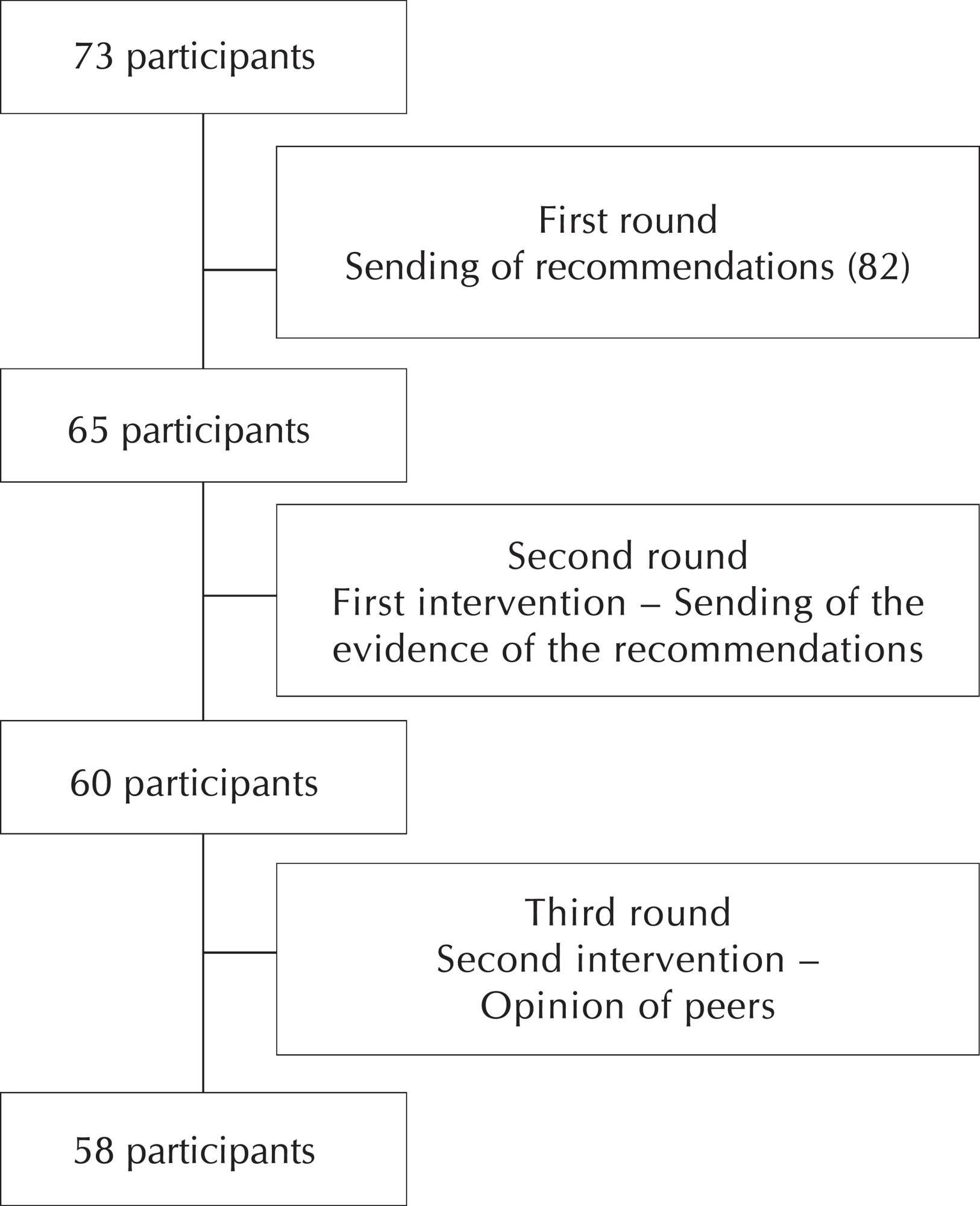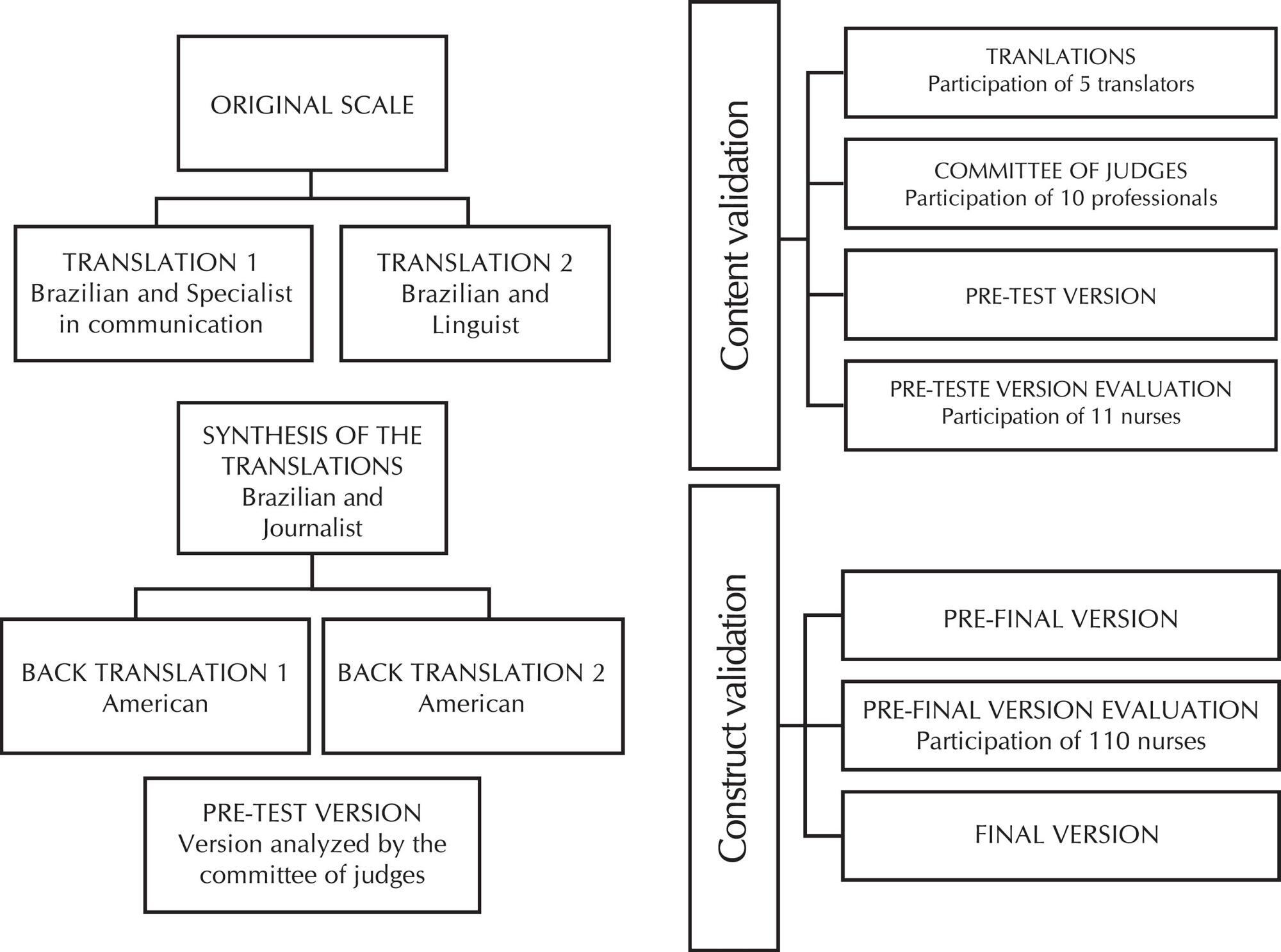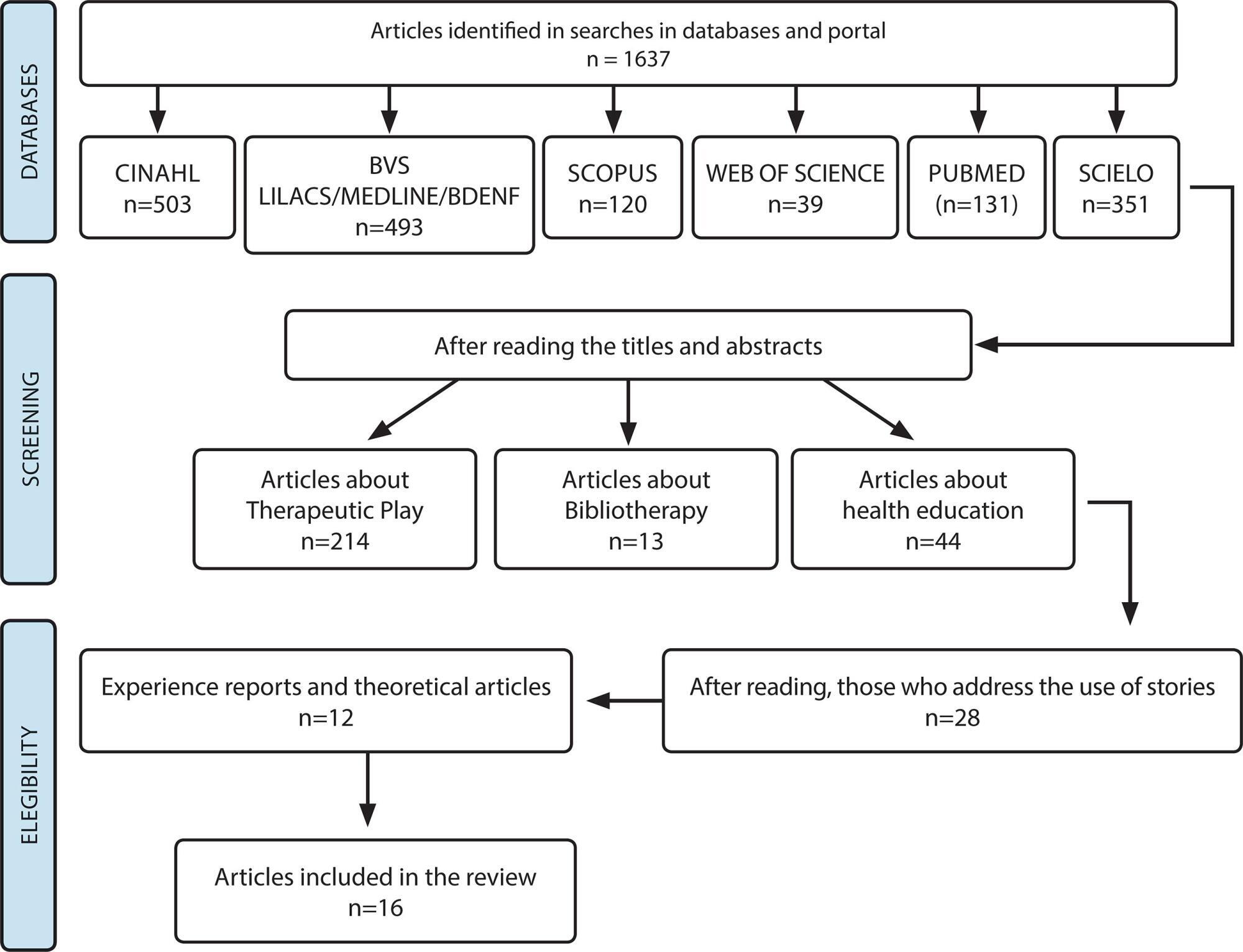-
RESEARCH01-01-2017
Opioid analgesic administration in patients with suspected drug use
Revista Brasileira de Enfermagem. 2017;70(3):626-632
Abstract
RESEARCHOpioid analgesic administration in patients with suspected drug use
Revista Brasileira de Enfermagem. 2017;70(3):626-632
DOI 10.1590/0034-7167-2016-0501
Views0See moreABSTRACT
Objective:
To identify the prevalence of patients suspected of drug use according to the nursing professionals’ judgement, and compare the behavior of these professionals in opioid administration when there is or there is no suspicion that patient is a drug user.
Method:
A cross-sectional study with 507 patients and 199 nursing professionals responsible for administering drugs to these patients. The Chi-Square test, Fisher’s Exact and a significance level of 5% were used for the analyzes.
Results:
The prevalence of suspected patients was 6.7%. The prevalence ratio of administration of opioid analgesics ‘if necessary’ is twice higher among patients suspected of drug use compared to patients not suspected of drug use (p = 0.037).
Conclusion:
The prevalence of patients suspected of drug use was similar to that of studies performed in emergency departments. Patients suspected of drug use receive more opioids than patients not suspected of drug use.

-
RESEARCH01-01-2017
Insulin therapy waste produced in the households of people with diabetes monitored in Primary Care
Revista Brasileira de Enfermagem. 2017;70(3):618-625
Abstract
RESEARCHInsulin therapy waste produced in the households of people with diabetes monitored in Primary Care
Revista Brasileira de Enfermagem. 2017;70(3):618-625
DOI 10.1590/0034-7167-2016-0406
Views0See moreABSTRACT
Objective:
To analyze the insulin therapy waste disposal produced in the households of people with diabetes mellitus (DM).
Method:
Cross-sectional study with 105 Primary Care patients. Socio-demographic and clinical variables and insulin therapy practice were analyzed through the absolute and relative frequencies, Fisher’s exact test and prevalence ratio (PR).
Results:
The association between types of insulin (60.0%), administered with a disposable syringe attached to a needle (80.9%), and a high percentage of reuse and disposal in normal household waste (57.1%) stood out. The professionals who most frequently provided guidance to people with diabetes were the nurses. Patients who had received instructions about disposal were 21 times more likely to dispose of waste properly than those who had not (PR 21.5; P < 0.0001). Age, gender, skin color, education, marital status, occupational status and type of DM did not interfere in the disposal (P > 0.05).
-
RESEARCH01-01-2017
Use of the Diffusion of Innovation Model in venous ulcers by specialized professionals
Revista Brasileira de Enfermagem. 2017;70(3):610-617
Abstract
RESEARCHUse of the Diffusion of Innovation Model in venous ulcers by specialized professionals
Revista Brasileira de Enfermagem. 2017;70(3):610-617
DOI 10.1590/0034-7167-2016-0235
Views0ABSTRACT
Objective:
To analyze the influence of the evidence and of the opinion of peers on the decisions of specialists regarding the agreement with recommendations for prevention and treatment of venous ulcer.
Methods:
This is a quasi-experimental study with two interventions: provision of studies with the evidence of the recommendations and provision of the opinion of peers, with sample of 73 specialized doctors and nurses. Delphi technique was used in the search for agreement, with three rounds.
Results:
The participants evaluated 82 recommendations organized into eight domains: evaluation of patient and wound; documentation of clinical findings; care with the wound and surrounding skin; indication of dressing; use of antibiotics; improvement of venous return and prevention of recurrence; referrals of patients; and professional training. The interventions resulted in statistically significant changes in four domains.
Conclusion:
The interventions were able to change the opinion of participants, leading them to agreement regarding the recommendations, regardless of the level of evidence.
Keywords:Delphi TechniqueDiffusion of InnovationHealth PersonnelPractice Guidelines as TopicVaricose UlcerSee more
-
RESEARCH01-01-2017
Teaching-learning evaluation on the ICNP® using virtual learning environment
Revista Brasileira de Enfermagem. 2017;70(3):602-609
Abstract
RESEARCHTeaching-learning evaluation on the ICNP® using virtual learning environment
Revista Brasileira de Enfermagem. 2017;70(3):602-609
DOI 10.1590/0034-7167-2016-0545
Views0ABSTRACT
Objective:
Evaluating the teaching-learning process of undergraduates and nursing professionals on the International Classification for Nursing Practice (ICNP®) through a course on Moodle Platform.
Method:
Mixed research conducted with 51 nursing students and nurses. Many technological and educational resources were used. To collect data, two semi-structured questionnaires were applied and focus groups were carried out. Statistical and thematic analysis of the data was performed.
Results:
There was a correlation between the Wiki variable, the Animation Video (p = 0.002) and the Arch Method (p = 0.04), as well as a correlation between the Forum, the Virtual Book (P < 0.001) and time (p = 0.009). Three topics emerged: innovation in the application of technological resources, distance education in the professional education and permanent education and the teaching-learning process on the ICNP® in a collaborative way.
Conclusion:
Teaching-learning strategies and technological resources used were pointed out as innovative and helped students have a better performance.
Keywords:Education, ContinuingEducation, DistanceEducation, NursingEducational TechnologyNursing CareSee more -
RESEARCH01-01-2017
Use of technologies in intravenous therapy: contributions to a safer practice
Revista Brasileira de Enfermagem. 2017;70(3):595-601
Abstract
RESEARCHUse of technologies in intravenous therapy: contributions to a safer practice
Revista Brasileira de Enfermagem. 2017;70(3):595-601
DOI 10.1590/0034-7167-2016-0216
Views0See moreABSTRACT
Objectives:
To identify what are the difficulties of the nursing staff in the management of technologies during intravenous therapy (IVT) and discuss the difficulties identified under the perspective of patient’s safety.
Method:
Descriptive study of qualitative approach with data collected by semi-structured interview and analyzed by the Alceste software.
Results:
The greatest difficulty of cognitive and technical emphasis was the lack of training; and regarding administrative emphasis, the greatest difficulty was the lack of material and human resources. Infusion pumps and their proper use were highlighted as the technological resource that most contributed to patient safety.
Final considerations:
The lack of training is presented as the greatest difficulty of nursing professionals and permeates safety issues of both patient and professional when using the hard technologies in IVT. Training is essential to the development of techniques, considered nursing tools.
-
RESEARCH01-01-2017
Validation of the self-assessment of communication skills and professionalism for nurses
Revista Brasileira de Enfermagem. 2017;70(3):588-594
Abstract
RESEARCHValidation of the self-assessment of communication skills and professionalism for nurses
Revista Brasileira de Enfermagem. 2017;70(3):588-594
DOI 10.1590/0034-7167-2016-0133
Views0ABSTRACT
Objectives:
to translate, adapt cross-culturally and validate into Brazilian Portuguese the following instrument: “Self-assessment of communication skills and professionalism in residents” for the nursing professional, and to determine if personal characteristics and performance of the nurse interfere in the self-assessment about professionalism and interpersonal communication.
Method:
quantitative study.
Results:
the sample consisted of 110 nurses with mean age of 32 years old (± 7.3), most of them were women (n = 80; 72.7%). The internal consistency of the scale “Autoavaliação sobre profissionalismo e comunicação interpessoal entre enfermeiro e paciente” presented moderate and satisfactory reliability (α=0,712). Factorial analysis identified four factors: Interpersonal Skills, Exchange of Information, Honesty in the Relationship and Professionalism.
Conclusion:
the instrument is valid and reliable in Portuguese and for Brazilian culture. Interpersonal Skills changed with gender and marital status. Ability to exchange information was influenced by gender and working sector. Self-assessment of professionalism changed with marital status.
Keywords:CommunicationNonverbal CommunicationNurse-patient RelationshipSelf-AssessmentValidity StudiesSee more
-
RESEARCH01-01-2017
Power relations in the family health team: focus on nursing
Revista Brasileira de Enfermagem. 2017;70(3):580-587
Abstract
RESEARCHPower relations in the family health team: focus on nursing
Revista Brasileira de Enfermagem. 2017;70(3):580-587
DOI 10.1590/0034-7167-2015-0171
Views0See moreABSTRACT
Objective:
to analyze the power relations that permeate the work of the family health team, and to discuss perspectives of emancipation of these subjects, focusing on nursing and community health agents.
Method:
a qualitative study with a family health team from a municipality in the countryside of the state of São Paulo. Data were collected through systematic observation and interview with workers. A thematic content analysis was performed.
Results:
three categories were identified: the work of the family health team and power relations; power relations between the nurse and the healthcare team; and the relations among the nursing team and between community agents and the nurse. The team produces relations of power moved by hierarchical knowledge that move in the search for the reordering of powers.
Final considerations:
it is necessary to review the contradictions present in the performance scenario of the family health teams, with a view toward making power relations more flexible.
-
RESEARCH01-01-2017
Virtual learning object and environment: a concept analysis
Revista Brasileira de Enfermagem. 2017;70(3):572-579
Abstract
RESEARCHVirtual learning object and environment: a concept analysis
Revista Brasileira de Enfermagem. 2017;70(3):572-579
DOI 10.1590/0034-7167-2016-0123
Views0See moreABSTRACT
Objective:
To analyze the concept of virtual learning object and environment according to Rodgers’ evolutionary perspective.
Method:
Descriptive study with a mixed approach, based on the stages proposed by Rodgers in his concept analysis method. Data collection occurred in August 2015 with the search of dissertations and theses in the Bank of Theses of the Coordination for the Improvement of Higher Education Personnel. Quantitative data were analyzed based on simple descriptive statistics and the concepts through lexicographic analysis with support of the IRAMUTEQ software.
Results:
The sample was made up of 161 studies. The concept of “virtual learning environment” was presented in 99 (61.5%) studies, whereas the concept of “virtual learning object” was presented in only 15 (9.3%) studies.
Conclusion:
A virtual learning environment includes several and different types of virtual learning objects in a common pedagogical context.

-
ORIGINAL ARTICLE03-30-2020
Team-Based Learning: a randomized clinical trial in undergraduate nursing
Revista Brasileira de Enfermagem. 2020;73(2):e20180621
Abstract
ORIGINAL ARTICLETeam-Based Learning: a randomized clinical trial in undergraduate nursing
Revista Brasileira de Enfermagem. 2020;73(2):e20180621
DOI 10.1590/0034-7167-2018-0621
Views0ABSTRACT
Objectives:
To compare the knowledge on surgical safety through the team-based learning methodology and lecture classes for undergraduate Nursing students, and evaluate the learning satisfaction with team-based learning.
Methods:
Randomized, controlled, parallel, two-arm, unblinded clinical trial developed in the Faculty of Medicine of a public university in Botucatu, Brazil. The groups included 14 students for team-based learning and 11 students for lecture classes.
Results:
Students’ apprehension of knowledge in the team-based learning group was significantly higher compared to the control group (p<0.002) by considering the pre-test results. After 30 days, there was no significant difference between groups. The experience with the methodology was considered positive among students.
Conclusions:
Team-based learning is an important pedagogic tool available and has proven effective in education and learning with students playing the role of protagonists.
Keywords:Higher EducationNursingPatient SafetyRandomized Controlled Clinical TrialValidation StudiesSee more
-
Factors associated with anxiety in multiprofessional health care residents during the COVID-19 pandemic
Revista Brasileira de Enfermagem. 2021;74:e20200961
Abstract
Factors associated with anxiety in multiprofessional health care residents during the COVID-19 pandemic
Revista Brasileira de Enfermagem. 2021;74:e20200961
DOI 10.1590/0034-7167-2020-0961
Views0See moreABSTRACT
Objective:
To estimate the prevalence and factors associated with anxiety among multiprofessional health residents during the COVID-19 pandemic.
Methods:
Cross-sectional study, conducted in July 2020 with multiprofessional health residents (n = 67) from a university hospital. We used the Beck Anxiety Inventory to assess anxiety. Analyzing data through the chi-square test, likelihood ratio, and multiple analysis using Poisson regression with robust variance.
Results:
The proportion of moderate/severe anxiety was 31.3%, which showed significant association with working in sectors involving COVID-19 and directly with suspected/confirmed cases of COVID-19. During the multiple analysis, we found prevalence of anxiety in participants who needed psychological support after entering their residence and those who used psychotropic meds.
Conclusion:
The results seem to indicate that residents had their mental health impaired during the pandemic, but the maintenance of the variables in the model also suggests that they sought help to control anxiety.
-
REVIEW12-13-2019
The use of children’s stories in nursing care for the child: an integrative review
Revista Brasileira de Enfermagem. 2019;72:333-342
Abstract
REVIEWThe use of children’s stories in nursing care for the child: an integrative review
Revista Brasileira de Enfermagem. 2019;72:333-342
DOI 10.1590/0034-7167-2018-0456
Views0See moreABSTRACT
Objective:
To identify how children’s stories can be used in child care.
Method:
Integrative literature review, conducted in databases between 2000 and 2018, in three languages. Full research articles were included that agreed with the following question: “How can children’s stories be used in child care?”.
Results:
From the analysis of 16 selected articles, three categories emerged: The use of stories in the hospital; Specialized nursing intervention; and Stories in the educational dimension.
Final considerations:
Evidence shows benefits to children, families, institutions and nursing. The use of children’s stories as a care intervention can occur in different situations and settings, values; boosts bonds, reduces anxiety in children and families, encourages children’s participation in care, and promotes health education. It is a low-cost and still incipient strategy in nursing.

-
ORIGINAL ARTICLE02-10-2020
Nursing practices in a psychological care center
Revista Brasileira de Enfermagem. 2020;73(1):e20180175
Abstract
ORIGINAL ARTICLENursing practices in a psychological care center
Revista Brasileira de Enfermagem. 2020;73(1):e20180175
DOI 10.1590/0034-7167-2018-0175
Views0ABSTRACT
Objective:
To analyze the practices developed by nursing professionals in a Psychosocial Care Center (CAPS).
Method:
A qualitative and evaluative research based on the Fourth Generation Assessment and conducted in a CAPS II of Santa Catarina State in 2014. For data collection, semi-structured interviews, field observation, and data recycling group were used with workers. Constant Comparative Method was used for data analysis.
Results:
Practices aimed at the subject and their clinical, social, prevention, treatment and articulation with the health network were identified. Medication care is a specificity of nursing that aims to promote autonomy and social reintegration. There is a need for greater articulation between the nursing and pharmacy staff, as well as creating spaces for users to talk about medication.
Conclusion:
Nursing practices are focused on biopsychosocial care, aiming to deconstruct care models focused on the disease and symptoms.
Keywords:Health Services EvaluationMental HealthMental Health ServicesNursing ProcessPsychiatric NursingSee more -
REFLECTION02-05-2021
Empathic listening: welcoming strategy for nursing Professional in coping with with the coronavirus pandemic
Revista Brasileira de Enfermagem. 2021;74:e20200721
Abstract
REFLECTIONEmpathic listening: welcoming strategy for nursing Professional in coping with with the coronavirus pandemic
Revista Brasileira de Enfermagem. 2021;74:e20200721
DOI 10.1590/0034-7167-2020-0721
Views0See moreABSTRACT
Objective:
to reflect on empathic listening use as a welcoming strategy for nursing professionals to cope with the challenges during the pandemic caused by the new coronavirus.
Methods:
this is a reflection study based on updated data surveys and theoretical-conceptual aspects of Non-Violent Communication and empathic listening.
Results:
in the performance during the COVID-19 pandemic, nursing professionals are exposed to violence of different natures related to occupational stress, work overload, anguishes and silenced suffering, with implications for the workers’ health, who can be benefited and strengthened with empathetic listening.
Final considerations:
the health crisis has highlighted the weaknesses of the health system. Nursing acts as the largest contingent of the health workforce in coping with the pandemic. Empathetic listening is a powerful strategy in caring for and strengthening nursing professionals.
-
ORIGINAL ARTICLE02-25-2022
Factors associated with stress, anxiety and depression in nursing professionals in the hospital context
Revista Brasileira de Enfermagem. 2022;75:e20210263
Abstract
ORIGINAL ARTICLEFactors associated with stress, anxiety and depression in nursing professionals in the hospital context
Revista Brasileira de Enfermagem. 2022;75:e20210263
DOI 10.1590/0034-7167-2021-0263
Views0See moreABSTRACT
Objective:
to determine the factors associated with stress, anxiety and depression, concomitantly, in nursing professionals who work in the hospital context.
Methods:
a quantitative and cross-sectional study with 353 nursing professionals from a hospital. A sociodemographic questionnaire and the Depression, Anxiety and Stress Scale-21 were used. Data were subjected to descriptive statistical analysis, difference and correlation tests.
Results:
the main factors associated with stress, anxiety and depression, concomitantly, were being female, compromised family and social support, lack of autonomy at work, hostile relationship with colleagues, lack of professional recognition and satisfaction, feeling of being overwhelmed and insecurity.
Conclusions:
demographic, physiological, social and work factors impact the levels of stress, anxiety and depression in nursing professionals. The adoption of coping strategies for modifiable factors should be considered, in order to provide better quality of life for these professionals.
-
Repercussions of intestinal ostomy on male sexuality: an integrative review
Revista Brasileira de Enfermagem. 2020;73(6):e20190245
Abstract
Repercussions of intestinal ostomy on male sexuality: an integrative review
Revista Brasileira de Enfermagem. 2020;73(6):e20190245
DOI 10.1590/0034-7167-2019-0245
Views0INTRODUCTIONThe intestinal ostomy, also known as stoma and ostomy, consists of an artificial opening, produced surgically, whose purpose is to divert the flow of effluents to the external environment. Such a condition can impact the lives of affected individuals due to transformations that affect human multi-dimensionality, including negative repercussions involving sexuality(–).In the United States of […]See more
Search
Search in:
Nuvem de Tags
Aged (144) Atenção Primária à Saúde (239) COVID-19 (104) Cuidados de Enfermagem (269) Educação em Enfermagem (151) Educação em Saúde (139) Enfermagem (930) Estudos de Validação (131) Health Education (144) Idoso (208) Mental Health (149) Nursing (987) Nursing Care (306) Patient Safety (151) Primary Health Care (284) Qualidade de Vida (104) Quality of Life (106) Saúde Mental (145) Segurança do Paciente (150) Validation Studies (108)



